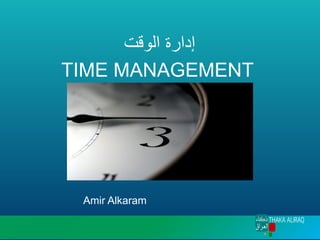The document discusses the importance of time management for achieving personal and professional goals, and outlines various causes of stress, which can be internal or external. It offers strategies for reducing stress through effective time management techniques, such as prioritization, delegation, and organization, while providing tools for tracking time and enhancing productivity. The document also highlights common time management problems and their solutions to improve efficiency and effectiveness in both individual and workplace settings.











































